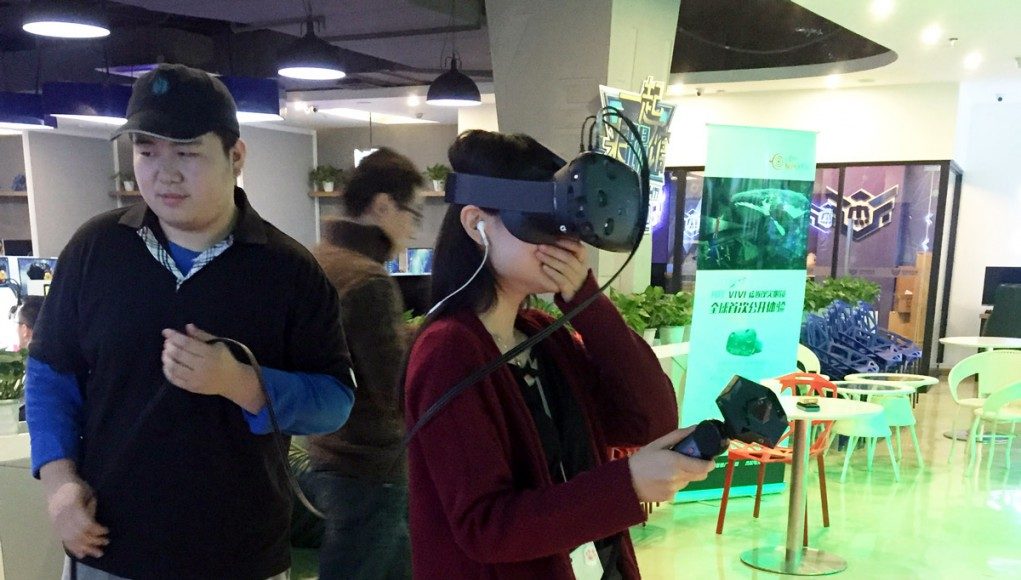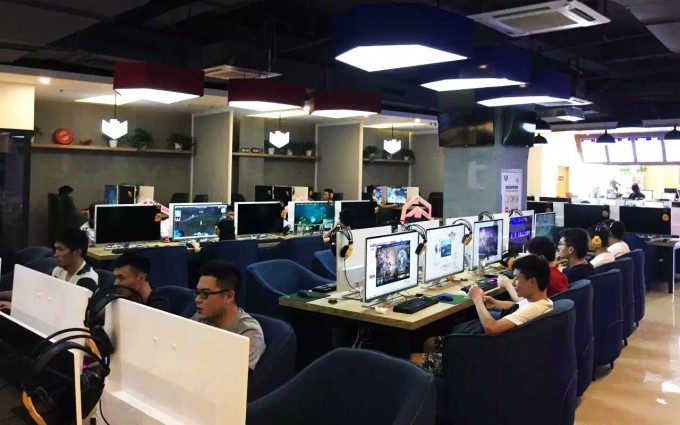As the country with the single largest population in the world (1.4 billion people), China’s gaming market is quite massive, but it’s also a massively different marketplace than what we see in the West. Shunwang is the leading platform provider within China’s many gaming cafes. The company is making a big push to bring VR to the masses through these cafes and is offering to help Western game studios bring VR games to their wide reaching userbase.
Shunwang’s software is the leading game library platform for China’s gaming cafes, allowing users who pay a time-based fee access to numerous games. The company says their software reaches more than 110 million users through their gaming cafe partners.

HTC announced a partnership with the company at an HTC-hosted VR event back in December; the partnership is part of Shunwang’s push to bring VR to gaming cafes across China.
Shunwang has experimented with pilot deployments starting with the HTC Vive. Their plan, much like the existing gaming cafe modality, is to offer arcade-like ‘VR Zones’ where users pay a time-based fee to use the system and play any number of VR games offered in their library. Ultimately they hope to have VR systems in every one of the 100,000 gaming cafes powered by their software.
But, at such an early stage in virtual reality, that library needs to grow, and Shunwang recognizes the need to bring high quality VR titles from the Western market into their platform.
I spoke with Shunwang’s Sky Liu who is leading the company’s VR strategy. Liu told me that Shunwang is offering wide-ranging support to help Western game studios bring their VR games to China, including a fund willing to support studios with investments ranging from $150,000 to $1.5 million.

Liu said that in addition to funding, Shunwang will work with game studios on localization, licensing, testing, publishing, and even guiding developers in adapting their games to suit common monetization models for the Chinese market (like in-game purchases). Liu welcomes interested studios to reach out to the company at vr@shunwang.com to explore opportunities to work together.
Developers deploying their game into Shunwang’s gaming cafe platform will receive compensation based on how much time their title is played, with a percentage split between the developer, the gaming cafe owner, and Shunwang itself.
Shunwang has deployed the HTC Vive pilot tests in several gaming cafes to gather user feedback. The company has gathered data points from 122 users on what they think of the system:
Top Three Game Features Players Want:
- 1st – Puzzle solving and room-escape
- 2nd – Role-playing / Be a superhero or famous character
- 3rd – First person shooting
Top Comfort Problems:
- Cables – 55.6%
- Headset comfort – 41.7%
- Can’t see body, afraid to move – 27.6%
Do You Mind Being Watched While Playing?
- Yes – 9.7%
- I don’t mind – 77.4%
- The more the better – 12.9%
Willingness to Recommend to a Friend:
- 10 on 10 point scale – 63.9%
- 9 on 10 point scale – 12.9%
- 8 on 10 point scale – 9.7%
In March Shunwang plans to open the first operational VR zones in flaghship gaming cafes in Beijing, Shanghai, Guangzhou and Hangzhou, where the company is based. Liu told me that the average gaming cafe of 70 PCs likely has space for two Vive systems, while some of the larger gaming cafes will deploy more.











